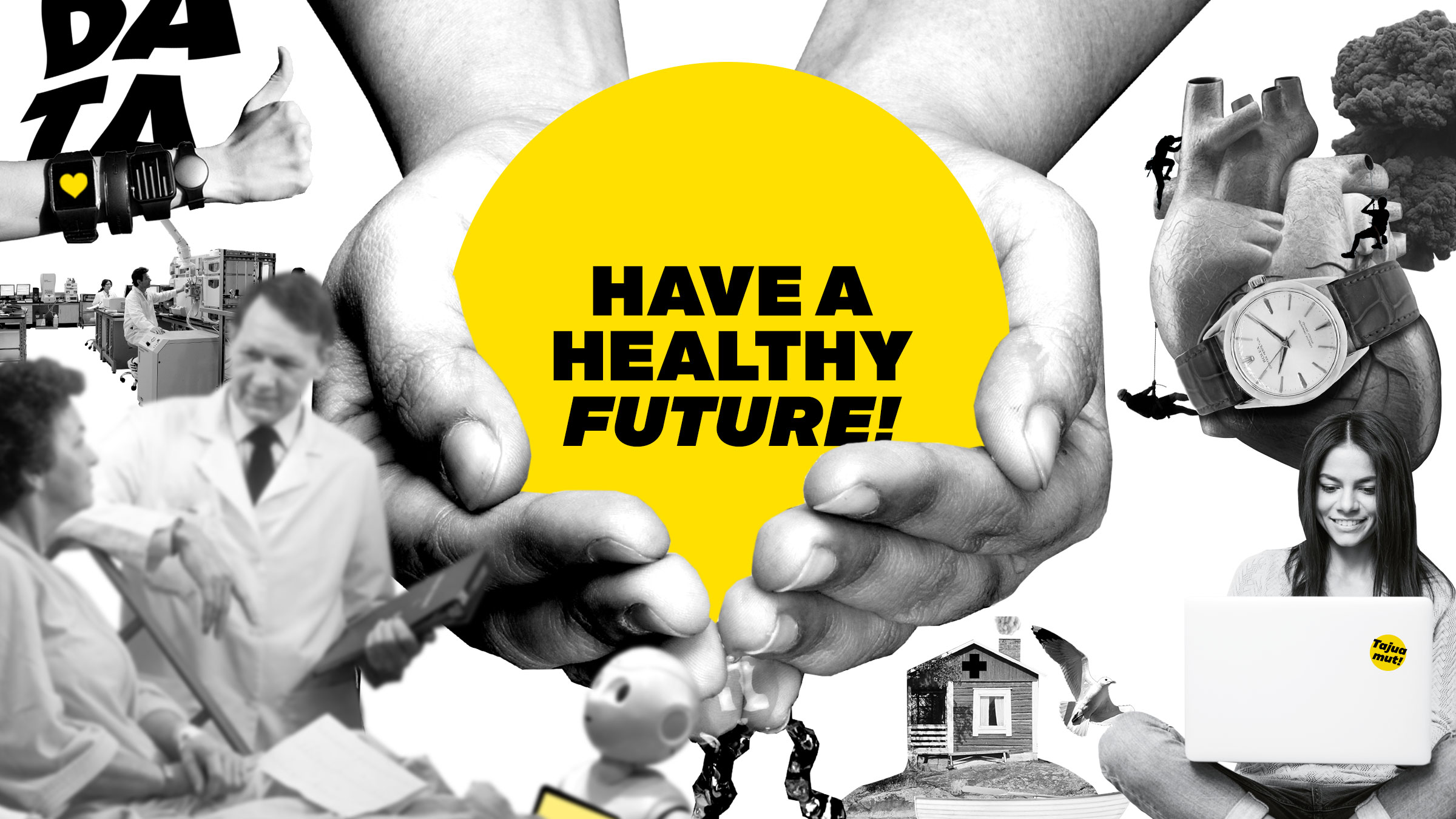With the democratisation of data relating to health and well-being, the position of authority figures has begun to waver. This has also taken place in healthcare.
The upheaval is an enormous one, and healthcare is still shedding its skin: the future will bring new changes with it, as technology and artificial intelligence develop further and data resources keep on growing.
What will this mean?
At the least that care will change, or should change, and become more individualised. At the same time, the prevention of diseases will become easier.
New professions will emerge in the health sector while old ones will reform, work tasks will change and some of the current ones will disappear. Self-care will become more common, and many issues will be resolved without the help of a healthcare professional.
People may already hold more data about themselves than the doctor
A major cultural change has already taken place as the position of power of the doctor has begun to crumble. This is essential in the reform of the healthcare system on the whole.
Sitra has invested in projects to promote this particular transformation. The aim of its efforts has been to strengthen the capacity for renewal of healthcare as the world around changes fast.
“Just 30 years ago, people were at the mercy of doctors with regard to their health, unless someone got to take a look at the Pharmaca Fennica encyclopaedia,” says Antti Kivelä, Director at Sitra. “Then the world began to change gradually. More recently, people have gotten access to information, thanks to the internet, for example, and people may already have more data about themselves than doctors.”
“The gap is widening at an astonishing rate”
In practice, this has translated into learning new operating methods. From the point of view of doctors, it has meant, among other things, that they have learned to justify to patients what is nonsense and what is medicine and relevant to care.
Digitisation and information systems have revolutionised the work of doctors and other healthcare professionals in other ways as well. The internet has also diversified their information sources. At the same time, professionals have obtained access to new tools, such as electronic medical record systems.
Kati Myllymäki, CEO of the Finnish Medical Association, has monitored the development of the field as Medical Adviser at the Ministry of Social Affairs and Health and Chief Medical Officer of the City of Kouvola.
“People’s need for information has increased enormously. Research and technology have taken enormous steps forward, but the application of information to individual patients has not. This gap is widening at an astonishing rate,” Myllymäki says.
Sitra has set out to narrow this gap by enhancing people’s opportunities to look after themselves independently. The means have included improving information management and increasing electronic services.
Sitra’s measures to this end have included the launch of Taltioni, a national data exchange layer, the Virtuaaliklinikka virtual clinic, IHAN project on fair data economy, the Care Gap health benefit analysis and the Terveyskirjasto online health library. They have ensured that everyone has access to information about themselves and better opportunities to maintain health and prevent diseases.
Thanks to the My Kanta service maintained by Kela, everyone can access health information about themselves. The Taltioni project launched by Sitra contributed to opening the way for the My Kanta service and accelerating the introduction of the mindset people need to be able to manage data about themselves.
Do we want ready-made answers or consulting?
Self-monitoring is becoming more common, and more and more people are wearing smart watches, for instance. Data from people’s personal devices is more reliable than before and increasingly just as relevant as data collected using expensive devices developed for medical use.
In the future, this data will be merged with data managed by healthcare operators, if that is what the patient wants.
When the patient encounters a healthcare professional with this data package, they expect consultation, not necessarily ready-made answers. They increasingly make the decision themselves, especially in the case of preventing diseases.
The rapid development of healthcare devices and supplies increases patients’ independence. Diabetics, for example, already visit a doctor or nurse less frequently now, as real-time blood glucose monitoring is becoming more common, allowing people to adjust their treatment themselves.
Information about the human genome is a good example of information that was previously rare becoming more commonplace. A diverse range of genetic tests is available to everyone via the internet, but interpreting them is another thing.
Finland, for example, only has around 40 specialists in clinical genetics. Help with interpretation is available online, but many people still prefer to have the opinion of a doctor or another healthcare professional.
The tests can also reveal unpleasant things about one’s genome, and people need support to digest them. This requires new professionals – not necessarily doctors, but, say, genetic analysts or well-being coaches specialised in the matter.
The fight against nonsense is accelerating
An enormous volume of data is an enormous opportunity. If not used, however, it provides no benefits. Individual treatment is only developed by drilling down as deep as possible into the data and understanding it correctly.
In the future, robotics and artificial intelligence will be able to compile all possible knowledge about diseases and their treatment to support professionals’ decisions.
With people’s strengthened autonomy, more and more are sitting in the driver’s seat. The need for safety and care will still remain unchanged, so healthcare structures and professionals must develop so that they can help increasingly autonomous people at the right time and in the right way.
People’s access to sources of information is increasing, but the amount of nonsense is increasing at the same time. This requires the system to be quick to react.
The challenge lies in ensuring that people and professionals make informed decisions and choices.
Laying down the prerequisites for informed decisions has been an underlying theme in Sitra’s projects relating to social welfare and healthcare.






Read more